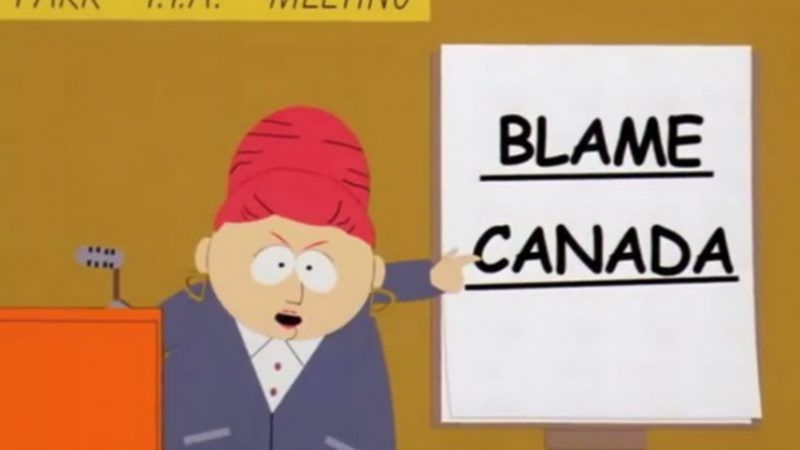Trump: Trade War With Canada Justified Because Brits Burned the White House in 1814
I mean, sure, that makes as much sense as any other reason.

During a phone call with Canadian Prime Minister Justin Trudeau last weekend, President Donald Trump reportedly justified his decision to impose tariffs on Canadian steel and aluminum by invoking…the burning of the White House by British troops during the War of 1812.
At least, that's what CNN is reporting this afternoon. Here's how they put it, citing information from "sources familiar with the call: "Trudeau pressed Trump on how he could justify the tariffs as a 'national security' issue. In response, Trump quipped to Trudeau, 'Didn't you guys burn down the White House?'"
That is, presumably, a reference to the War of 1812, during which British troops invaded Washington, D.C., and set fire to the White House. Despite the war's name, the burning of the White House actually occurred in 1814. And it wasn't carried out by Canadians because, well, Canada did not become an independent nation until 1867—or 53 years after the White House burned.
But, sure, whatever. The War of 1812 makes Canada a national security threat in the year 2018, despite our having been allies for the last century, sharing the world's longest unpatrolled border, and exchanging more than $620 billion in goods last year. The rationales for war with Canada in Canadian Bacon and South Park: Bigger, Longer & Uncut are more grounded in reality.
Sadly, "because you burned the White House" might be the best argument Trump has for tariffs. The national security rationale for steel and aluminum tariffs, published in late February by the Commerce Departmet, argues that American weapons of war depend on steel and aluminum supplies, and so domestic producers must be protected from international supplies that could be cut off in the event of a conflict.
But as I've written before, this is nonsense. Any scenario where Canada restricts aluminum exports to weaken U.S. national security occurs in a world where Washington has much bigger problems than domestic aluminum capacity.
But at least this latest episode allows for a unified theory of the two Trump-centric controversies making headlines this week.
After sacking Washington, the British military moved farther up the Chesapeake Bay and laid siege to Baltimore. While that was happening, a Georgetown-based lawyer named Francis Scott Key happened to be aboard one of the British ships, trying to negotiate the release of several Americans taken prisoner during the attack on Washington. His experience became the basis for a poem, "The Star-Spangled Banner," that now serves as our national anthem—something that also happens to be in the news a bit these days.
And isn't it at least possible that Trump's got the War of 1812 on his mind at the moment because his staffers are trying to educate him about his much-beloved anthem?
Trump's defenders will surely argue that his "burn down the White House" comment was a joke. Maybe so. But Trudeau doesn't seem to be laughing. During an appearance on NBC's Meet The Press this weekend, the Canadian PM said "the idea that we are somehow a national security threat to the United States is quite frankly insulting and unacceptable."


Show Comments (150)